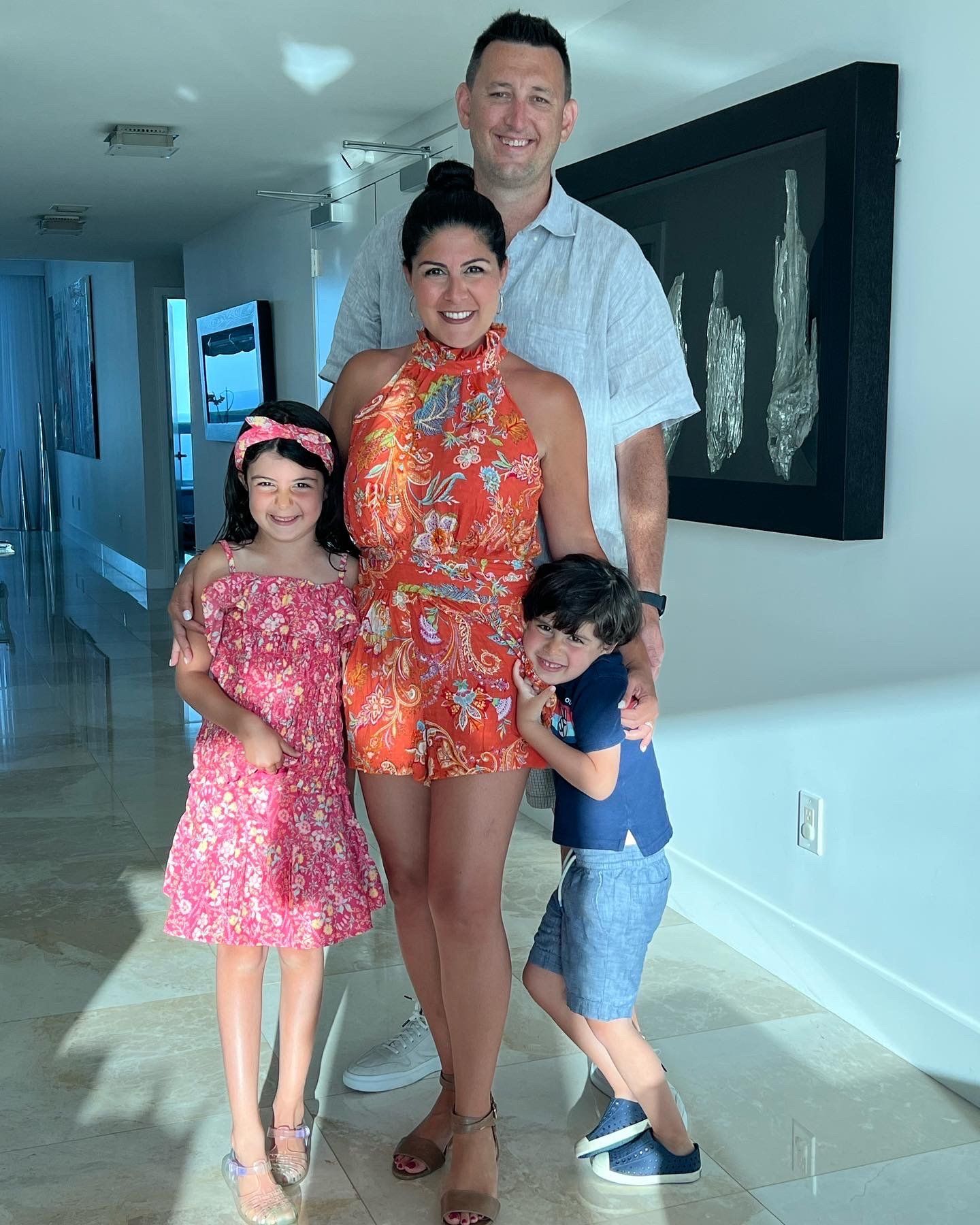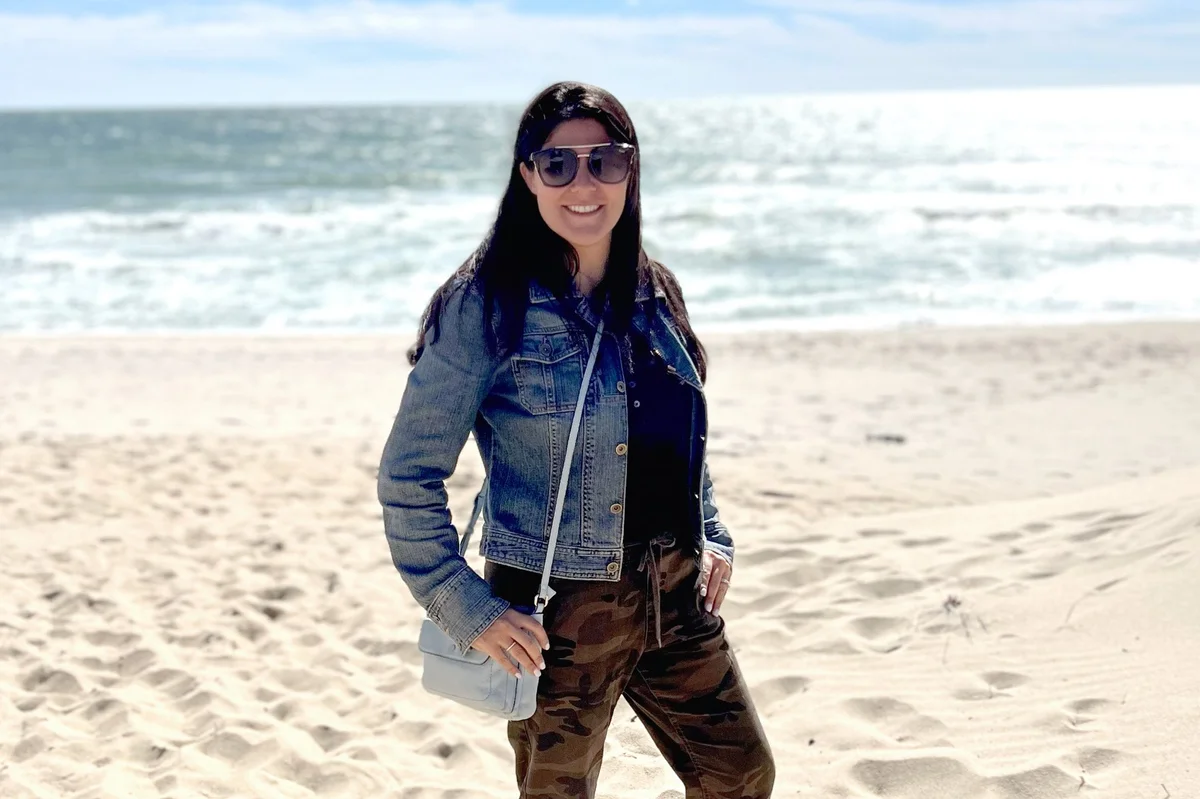As told to Erica Rimlinger
It was the big day: my first Zoom event at my new job. I woke up with my mind buzzing with details. I set my intention: I’d create a safe space for everyone in the breakout room I was moderating and the event would be a success.
I jumped right into juggling the daily demands of being a working mom. My husband was out of town, so the first step was to make sure the babysitter was set to help with my 4- and 6-year-old after I brought them home from school.
I’ve got it, I thought, my Superwoman cape flapping in the breeze. It’s nothing I can’t handle.
And then, as the morning sun streamed through my office window, I felt the first twinge of a headache that responds to bright light and reminds me I’m human.
I’ve always had headaches, but I’ve also always had an amazing ability to keep it together until it’s OK to unravel. I remember pulling all-nighters in high school and acing my exams only to have a complete meltdown in the car on the drive home.
Growing up with a mother who is a self-transformational guru — and later getting immersed in the work myself — I have familiarity with self-care tools that have helped me cope with the biggest stressors in my life.
But after having my children, my mindfulness practice got set aside, like so many other self-care habits. And my slight tension headaches grew into debilitating migraine attacks.
Like any difficult relationship, I had to get to know these migraine attacks very well before I could understand them — and then use my knowledge to make them go away. I learned they make me sensitive to light and loud noises. I’ve noticed my attacks are tied to my hormonal health. And I’ve also figured out that I can usually stave off an attack if I drink enough water, eat well, sleep well and manage my stress levels.
None of which I’d been able to do that day.
While each migraine attack has its own individual “tell,” a little warning bell that rings softly at first, I can miss it — if I choose. I noticed my light sensitivity but told myself I had no time to give to a migraine attack that day. I would push through the pain. I, like many women I know and admire, prided myself on my ability to thrive under pressure.
But, despite my willpower, the headache grew throughout the morning into the afternoon, intensifying with each ball that was added to what I was juggling. It seemed to compress these details into lasers of pain that pierced my eyes and brain.
I had a call in 15 minutes but I could no longer even sit at my desk. I crawled to my bed, phone in hand. When I felt able to muster the effort, I searched for medicine. I was out. I texted my boss.
“Are you OK to handle this call without me?” I asked. “I feel a migraine attack coming on.” Thankfully, she told me to turn off my phone and go to sleep.
I did just that and woke up at 3:00 p.m. I panicked. School was going to end in 15 minutes, and the babysitter wasn’t on the list of authorized people to pick up my kids. I contemplated getting up to walk the five minutes to the school to get them myself, but with each slight movement my nausea got worse. I was stuck.

I called my husband out of an important off-site meeting and he arranged for the babysitter to grab the kids and to get me medicine. I hung up the phone, vomited and fell back asleep.
Hours later, I woke up to the sound of happy little voices settling into bed. I lifted the pillow off my face ever so slightly to look at my phone. It was 8:20 p.m. The new shirt I’d bought with my company brand colors was still hanging in my closet. I’d missed the event. I’d missed bedtime. I’d missed it all.
In the end, the kids were fine and the event was a success. But I was left with a lot to process during my post-migraine fog. I was scared of what would have happened if the babysitter hadn’t been there. I was worried about what would have happened if my team hadn’t been able to step in. Thankfully, my babysitter and my colleagues had come through for me. But, I realized, I hadn’t come through for myself.
By not prioritizing taking care of myself, I’d created the perfect storm of not being able to take care of any of my priorities. It hit home for me: Self-care isn’t a luxury, it’s a necessity.
Since that day, I’ve made a conscious commitment to my own health and wellness. When I feel that light sensitivity creeping in, I know to hit pause, reassess and give my body what it’s requesting. I’ve reinstated my mindfulness practice, which has helped me to be present. You can’t worry about the future or the past if you’re living in the moment. And on particularly busy days, I add taking care of myself to the top of my list of intentions.
Like everything else, it takes practice to learn how to fully listen to your ever-changing body and I’m still working on it but the little changes I’ve made are having an impact. I haven’t had a migraine attack since.
Have a Real Women, Real Stories of your own you want to share? Let us know.
Our Real Women, Real Stories are the authentic experiences of real-life women. The views, opinions and experiences shared in these stories are not endorsed by HealthyWomen and do not necessarily reflect the official policy or position of HealthyWomen.
- Most People Who Experience Migraine Are Women: Here’s What You Need to Know ›
- When It's More Than Just a Bad Headache ›
- How to Know If You’re Experiencing Migraine ›
- Can Migraine Attacks Be Triggered? ›
- Botox and Migraine: What You Need to Know ›
- Self-Care for Migraines - HealthyWomen ›
- Cuidados personales para migrañas - HealthyWomen ›







